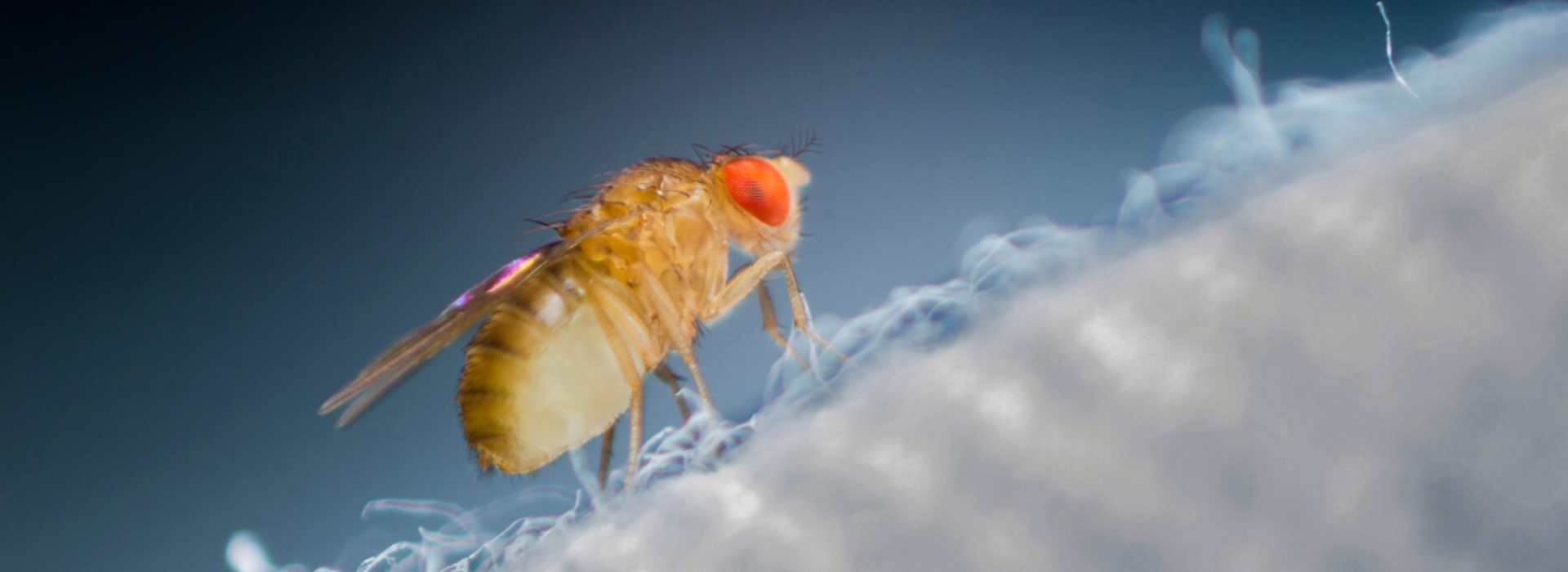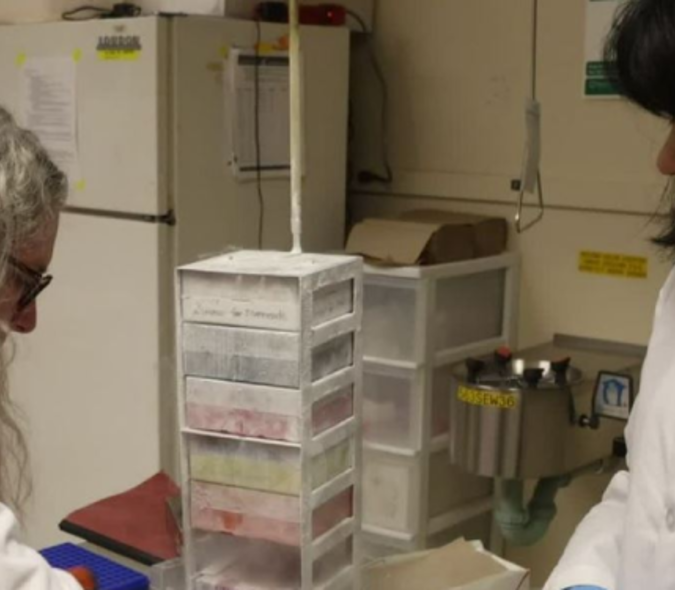
Biomedical Researchers Study Fruit Flies to Understand Human Genetic Functions
Researchers in the Department of Biomedical Sciences, Associate Professor, Pedro Fernandez-Funez, PhD and Postdoctoral Associate, Ryan Myers, PhD, recently contributed to the book, Molecular Genetics of Axial Patterning, Growth and Disease in Drosophila Eye, describing the relevance of the fruit fly in the discovery of genes and genetic processes relevant for the formation of the eye.
Many of the mechanisms described in the different chapters of the book are highly conserved in other insects, animals and in humans. Drs. Fernandez-Funez and Myers explain how the eye of this small fly has been exploited to discover the genetic mechanisms underlying human diseases affecting the brain. Expression of human genes responsible for brain diseases like Alzheimer's and Amyotrophic Lateral Sclerosis in the fly eye perturb the eye and the mechanisms of these perturbations can be studied by many techniques.
The fruit fly is a hotbed for the development of innovative techniques-mainly genetics and imaging. Read these recent innovations in detail here.
The Fernandez-Funez Lab uses the power of genetics to make discoveries and also utilizes neuroscience, cell biology, molecular biology, protein biochemistry, imaging, histology, and behavioral techniques to conduct comprehensive studies on relevant genes implicated in neurodegeneration.



